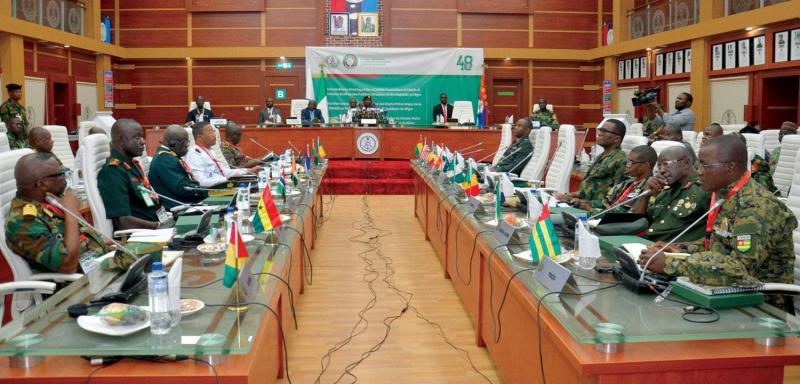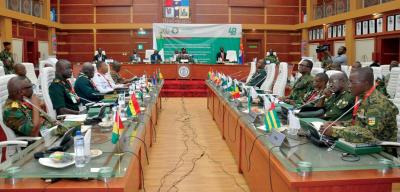The military council in Niger rejected today, Tuesday, the reception of a diplomatic mission from West African countries aimed at restoring constitutional order following the coup on July 26. The council also resisted pressure from the United States and the United Nations to engage in negotiations. A spokesperson for the Nigerian presidency indicated that President Bola Tinubu ordered the imposition of new sanctions through the Central Bank of Nigeria to pressure entities and individuals involved in the power takeover.
A message circulated on social media, which was confirmed by a spokesperson for the Nigerien military, stated that the military council denied travel permits to a joint delegation from ECOWAS, the African Union, and the United Nations. The message indicated that popular anger among Niger's citizens due to the sanctions imposed by ECOWAS in response to the coup made it impossible to safely host the envoys. It denounced what it described as a "climate of threats of aggression against Niger." A spokesperson for the African Union confirmed the denial of entry for the mission, while ECOWAS declined to comment.
The military council had already ignored meetings with a senior American envoy and another delegation from ECOWAS. Niger had managed relatively well under the leadership of Bazoum in containing an Islamist insurgency affecting the Sahel region and had been an important ally for the West, especially after two of its neighbors turned away from the former colonial power France, opting instead for Russia.
Niger is the seventh-largest producer of uranium in the world, the primary fuel used in nuclear power, increasing its strategic significance. The United Nations stated that Secretary-General Antonio Guterres strongly supports the mediation efforts by ECOWAS. U.S. Secretary of State Antony Blinken told French radio "RFI" today that diplomacy is the best way to resolve this situation and declined to comment on the future of about 1,100 American troops in Niger, where French, German, and Italian forces are also stationed.
Later, Blinken told the BBC that he is concerned that the private Russian military group Wagner might exploit the instability in Niger to increase its presence in the Sahel region. He mentioned, "I believe that what has happened and what is happening in Niger was not instigated by Russia or Wagner, but they... tried to take advantage of it."
U.S. Under Secretary of State Victoria Nuland traveled to Niamey on Monday, but the authorities did not allow her to meet with the military council head, Abdrahmane Tiani, or the detained Bazoum. Nuland stated that her discussions with junior officers were "frank and difficult," and the officers showed little interest in exploring ways to restore democracy. ECOWAS sent a mission to Niamey last week led by Abdulsalam Abubakar, a former military governor of Nigeria, but Tiani also refused to meet with him.
In contrast, Tiani met on Monday with a joint delegation from Mali and Burkina Faso, two countries where the military had taken control from civilians. The military councils in those countries pledged to support the coup in Niger. The spokesperson for the ruling military council in Niger, Abdallah Maiga, said on government television, "We will not accept military intervention in Niger. Our survival depends on that."
Some protesters in Niamey supporting the coup raised Russian flags, which residents and fabric vendors said had become a symbol of protest. One resident, Akasha Abdulaziz, stated, "I am a fan of the Russian flag, and that is why I came today to buy fabric to have a flag made." Western allies fear that Niger may follow the path of Mali, which expelled French and UN peacekeeping forces and invited Wagner after a coup in 2021.
Witnesses and human rights groups reported that fighters believed to be from Wagner conducted a brutal military attack alongside the Malian army, executing hundreds of civilians last year. The military and Wagner denied the allegations. In a new report obtained by "Reuters" on Monday, UN sanctions monitors noted that they had also used a campaign of sexual violence and other severe human rights violations to terrorize the population.




